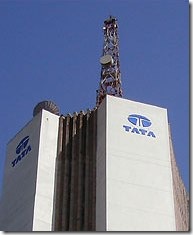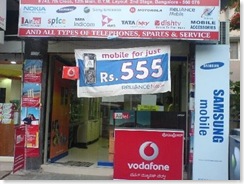India’s Tata Communications is seeking a rights issue to raise INR30 billion (US$600 million) in order to fund the purchase of WiMAX spectrum and to fund possible foreign acquisitions.
 The company has approached the government – a 26 per cent shareholder – over the financing, as well as its major shareholder Tata Sons, and several financial institutions and banks.
The company has approached the government – a 26 per cent shareholder – over the financing, as well as its major shareholder Tata Sons, and several financial institutions and banks.
Part of the funds would be used in the deployment of submarine cable projects, as well as in the auction of WiMAX spectrum, which is scheduled to start at the completion of India’s impending 3G auction.
It is believed the company is eyeing up possible acquisitions in the managed services space in the US or UK, given their low valuations at present, although no specific companies have been named.
Tata Communications’ portfolio includes transmission, IP, converged voice, mobility services, and managed network connectivity for corporate clients, as well as broadband and content services for Indian consumers.







